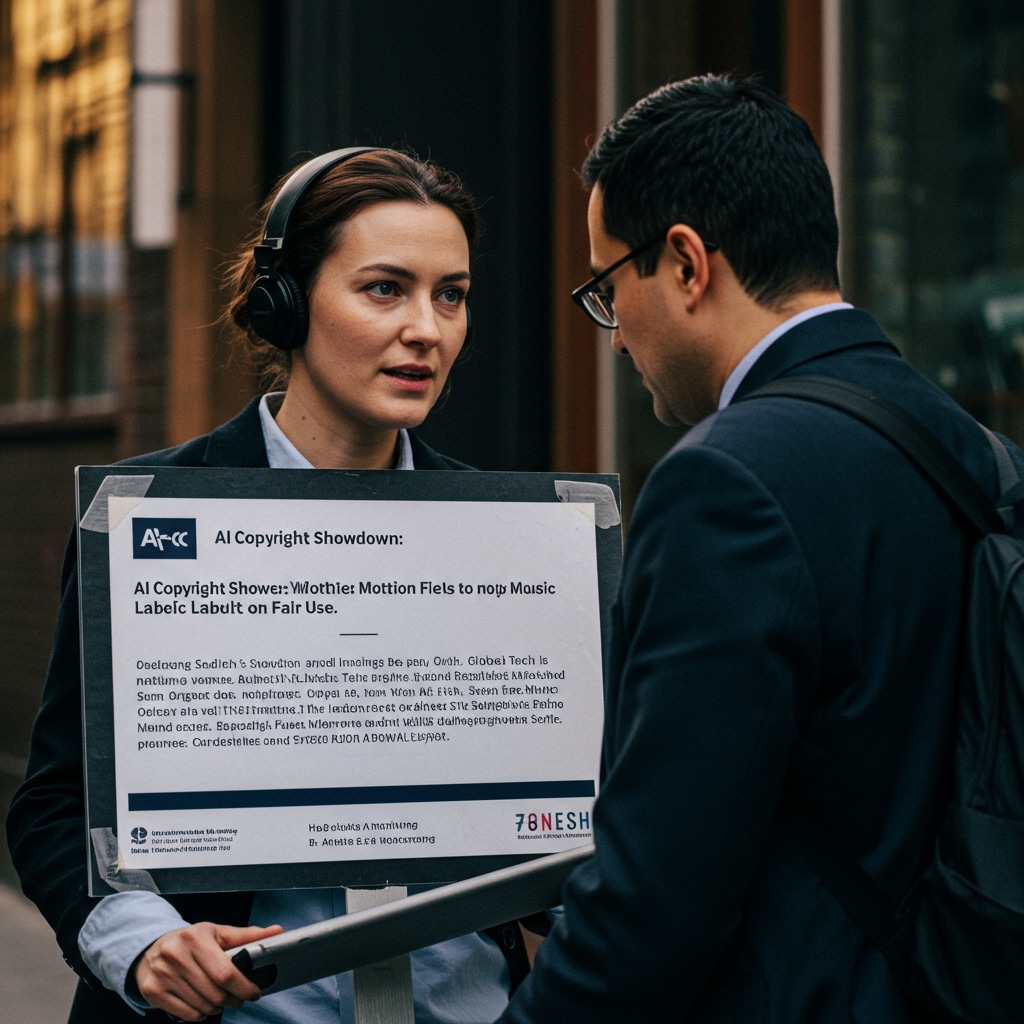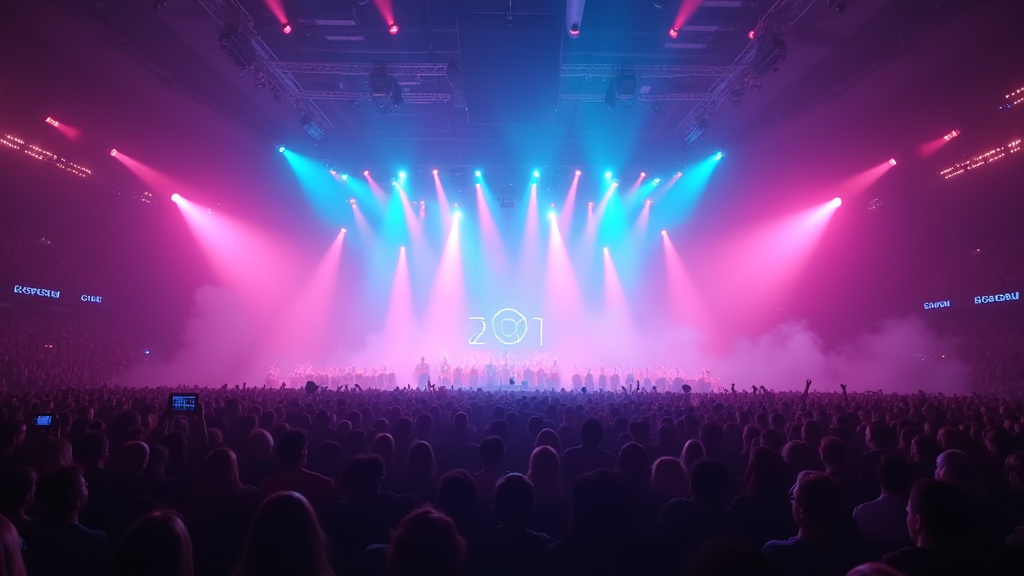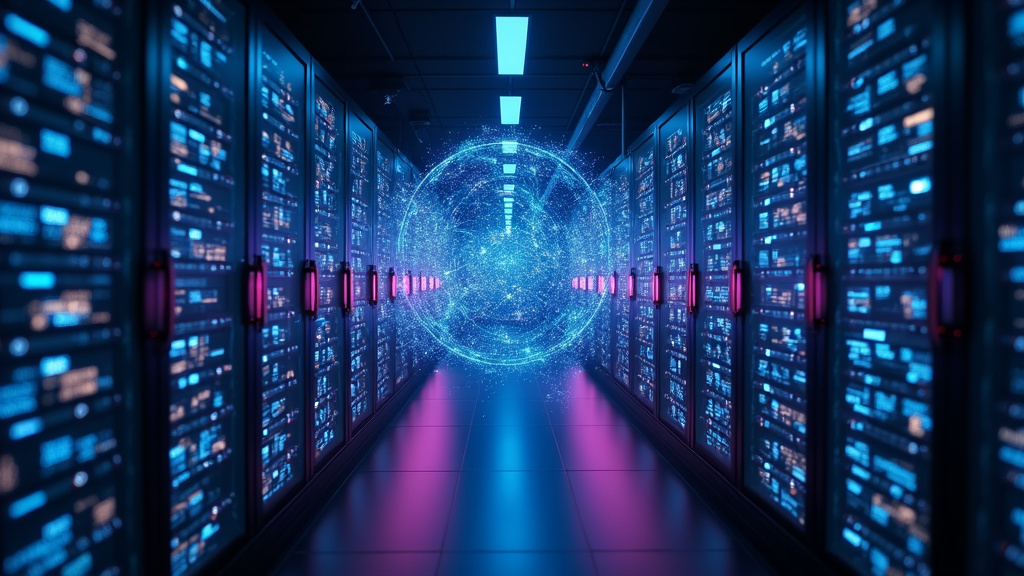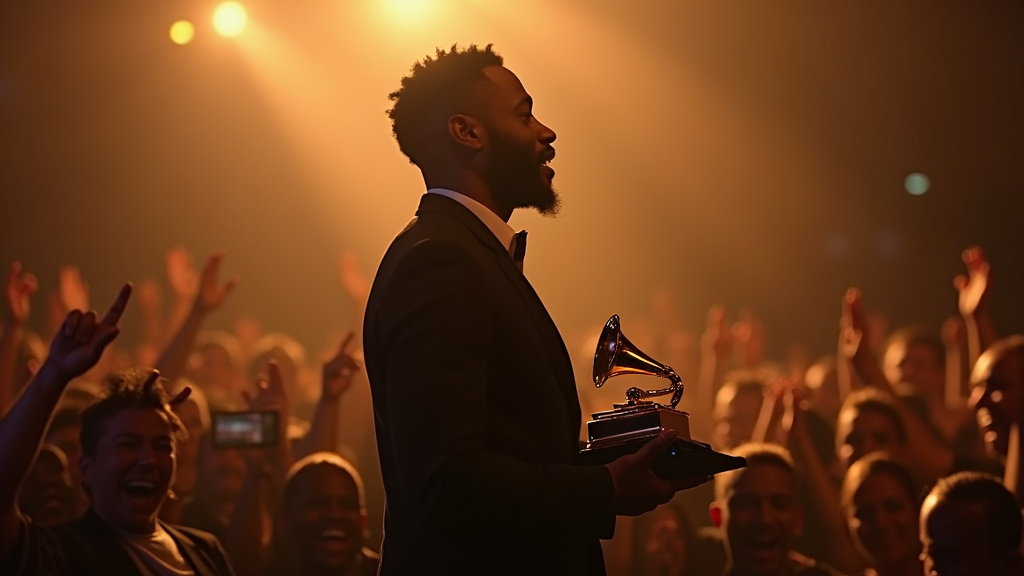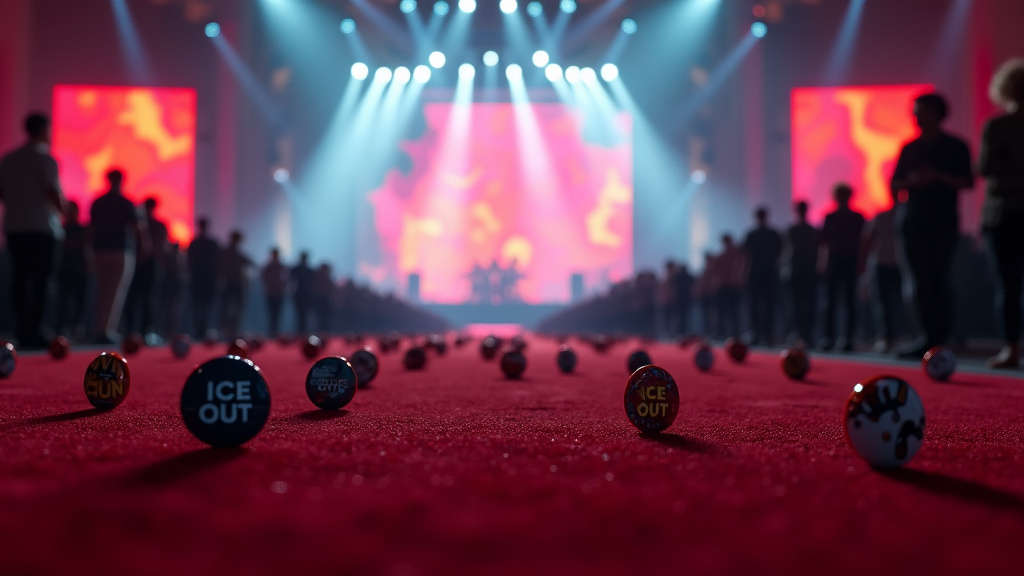GlobalTech Seeks Dismissal in Landmark Music AI Copyright Case, Citing Fair Use
Los Angeles, California – Tech giant GlobalTech has escalated its legal battle with major record labels and a prominent artists union, filing a formal motion to dismiss their copyright infringement lawsuit. The motion, submitted to the Central District of California federal court on February 21, 2025, marks a critical juncture in a case poised to define the boundaries of copyright law in the age of generative artificial intelligence.
At the heart of GlobalTech’s defense is the assertion that its practices involving the use of copyrighted music data for training AI models fall squarely under the doctrine of fair use. The lawsuit, initially filed by a coalition of record labels and the artists union, alleges that GlobalTech’s AI systems were trained on vast datasets containing copyrighted musical works without proper authorization, constituting infringement. Plaintiffs are seeking significant damages and comprehensive injunctive relief to prevent future alleged infringements and control the output of AI systems potentially generating music in the style of protected works.
The Plaintiffs’ Claims and Industry Concerns
The lawsuit brought by the major record labels and the prominent artists union reflects growing anxieties within the music industry and broader creative sectors regarding the unlicensed use of copyrighted material to train powerful AI models. Plaintiffs contend that the act of copying and ingesting their protected sound recordings and musical compositions into AI training datasets is, in itself, an act of copyright infringement. Furthermore, they argue that the outputs generated by these AI systems are derivative works, infringing upon their exclusive rights to create adaptations of their original material. They assert that AI models trained on copyrighted music can generate new tracks that mimic the style, sound, and even specific elements of existing songs, thereby competing directly with human artists and potentially devaluing their work and associated rights.
The plaintiffs’ filing detailed various ways they believe GlobalTech’s AI infringes, including the creation of training copies, the potential for the AI to generate outputs that are substantially similar to copyrighted works, and the alleged circumvention of traditional licensing mechanisms that govern the use of music. They painted a picture of AI technology as a disruptive force that threatens the economic models underpinning the music industry, built on licensing and copyright protection.
GlobalTech’s Fair Use Defense Detailed
GlobalTech’s motion to dismiss directly challenges the plaintiffs’ fundamental claims, particularly their interpretation of copyright infringement in the context of AI training. The company argues that the training process constitutes a transformative use of the data. In legal terms, a transformative use is one that changes the purpose or character of the original work, adding new expression, meaning, or message. GlobalTech contends that ingesting copyrighted music data for the sole purpose of identifying patterns, relationships, and structures to train a complex AI model is fundamentally different from using the music for its intrinsic expressive purpose (like listening, performing, or distributing). The data, in this context, serves as raw material for teaching the AI, not as content to be consumed or exploited in its original form.
Furthermore, GlobalTech asserts that the outputs generated by its generative AI systems are not derivative works in the traditional copyright sense. The company argues that while the AI learns from the data, it does not reproduce or adapt specific copyrighted works to create its output. Instead, the AI generates novel compositions based on the vast array of patterns and information it has learned from its training data, which includes a diverse range of inputs, not solely copyrighted music. They posit that these outputs represent new creative expressions, not mere transformations or adaptations of existing songs. This argument is crucial because copyright law grants exclusive rights to copyright holders to prepare derivative works.
Challenging Damages and Injunctive Relief
By arguing that their actions constitute fair use and that the AI outputs are not infringing derivative works, GlobalTech directly undermines the plaintiffs’ claims for both monetary damages and injunctive relief. If the court agrees with GlobalTech’s fair use argument, the training process would not be deemed infringing, eliminating a primary basis for damages. Similarly, if the outputs are not considered infringing derivative works, there would be no legal grounds for the broad injunctions sought by the plaintiffs, which aim to restrict how GlobalTech’s AI operates and generates content.
The motion to dismiss asks the court to throw out the case, or at least significant portions of it, arguing that the plaintiffs’ complaint fails to state a claim upon which relief can be granted under existing copyright law when the principles of fair use are properly applied to the context of AI training and output generation.
Setting the Stage for a Legal Showdown
The filing of this motion sets the stage for a significant legal clash that could have far-reaching implications for both the technology and creative industries. It forces the court to grapple with applying copyright law, developed long before the advent of sophisticated generative AI, to novel technological processes. The outcome of GlobalTech’s motion to dismiss will provide crucial early insight into how the judiciary views the intersection of AI training, data usage, and copyright protection. A ruling in favor of GlobalTech could significantly limit the scope of copyright holders’ ability to control the use of their works in AI training datasets, while a ruling against GlobalTech could impose substantial new licensing burdens on AI developers.
Following GlobalTech’s motion, the plaintiffs will have an opportunity to file an opposition, detailing why they believe their claims are valid and why the motion to dismiss should be denied. GlobalTech will then have a chance to reply to the opposition. The court will ultimately hold a hearing to consider the arguments before issuing a ruling on the motion. This process is likely to take several months.
This case remains a focal point in the ongoing global debate about artificial intelligence, intellectual property rights, and the future of creativity. The court’s decision on GlobalTech’s motion to dismiss will be closely watched by stakeholders across various industries grappling with the disruptive potential and legal challenges posed by generative AI technology.

